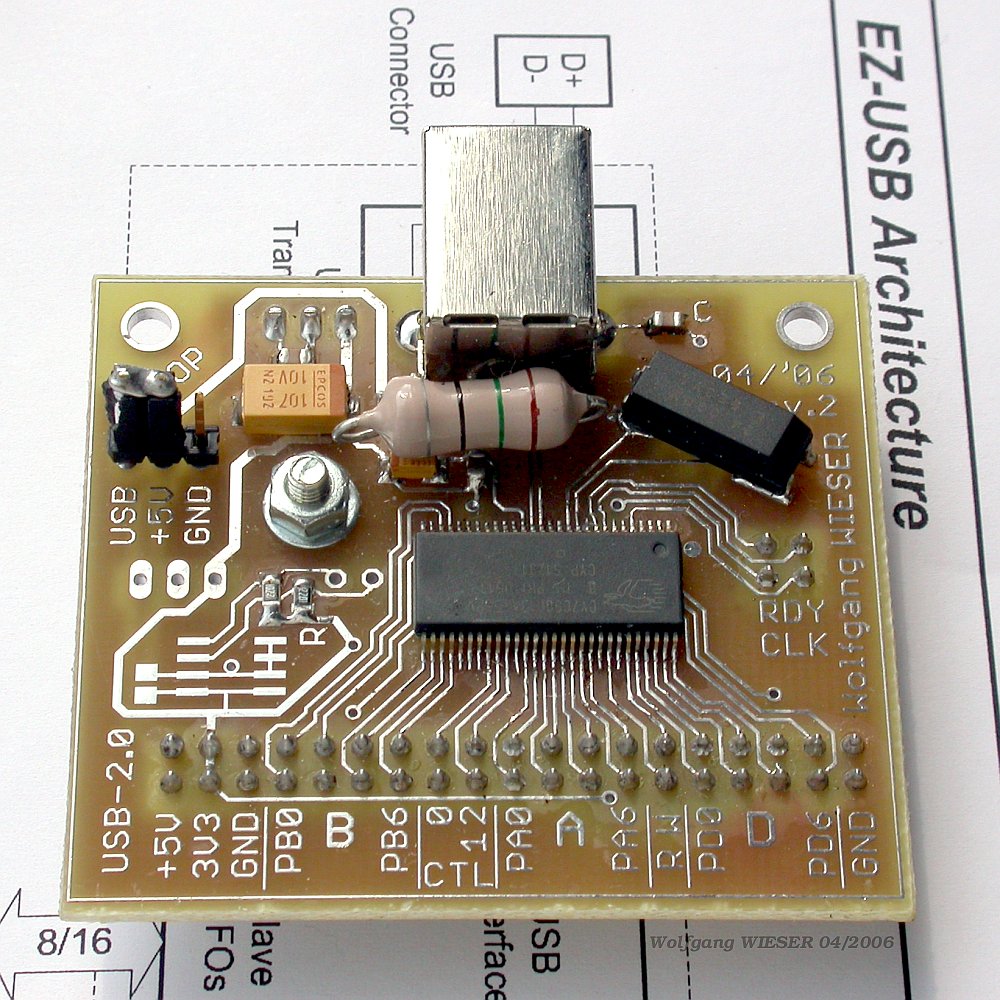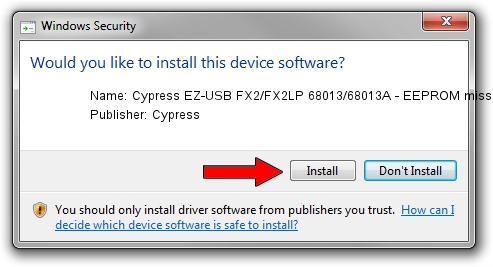
| Uploader: | Kajilabar |
| Date Added: | 16 October 2016 |
| File Size: | 54.87 Mb |
| Operating Systems: | Windows NT/2000/XP/2003/2003/7/8/10 MacOS 10/X |
| Downloads: | 55054 |
| Price: | Free* [*Free Regsitration Required] |
EZ USB on Linux
This web page is designed as a community resource, with cross links to related projects as well as hosting some Linux-focused efforts directly. Kernel device drivers can do the downloads, but then the firmware just locks down kernel memory. Devices that also have off-chip memory use the two stage loader mode. Cyprexs could usefully write a Free Software version.
A number of them need to download firmware before they are usable. One suitable loader is available dx2 Cypress.
Cypress EZ-USB FX2 (CY7C68XXX)
Plus, it's easier to distribute updated cyypress if you don't need to upgrade a kernel driver to do that. The FX2 doesn't support quite as many endpoints six plus controlbut it does handle multibuffered high speed transfers in hardware. This software is still usable on 2.
Firmware source is available. Martin Diehl has provided EZ-USB firmware implementing simple device protocols that are very useful when used with usbtest software from Linux-USB hosts, to help verify correct operation of the host and isolate bugs. That means computers need to download firmware to such devices before they're used.
There's a project working on HID firmware: For in-the-field product updates, or for developers, you can use a specialized second stage loader to write the boot EEPROMs.

Plugging EZ-USB devices into a Linux system runs device-specific scripts, which can download the appropriate firmware hexfile. When supported directly by the Linux kernel, these devices appear just like any other kind of serial port.
At this writing, all that firmware is statically linked into the appropriate mini-driver.
For end user scenarios, it hooks up easily to hotplug utilities. USB devices typically have to work with many operating systems.
A company called AnchorChips now owned by Cypress came out with an innovative and useful product a while ago: The Linux system will typically be much more powerful, since it has at least a bit processor and richer software environment. Their Linux support builds on the common kernel and user mode USB infrastructure, which you can read about elsewhere on this site.
The usbstress software http: You could run simple tests that transferred control, bulk, or isochronous traffic. Device firmware just processes interrupts, fills buffers, and tells the hardware to do its thing.
It can support all USB endpoints 30 plus control.

Comments
Post a Comment